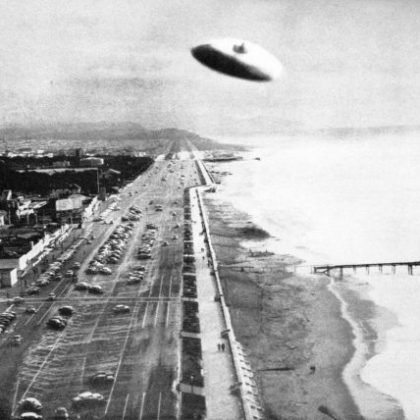David Crosby punctuates many of his sentences with an incredulous chuckle.
It’s a knowing sound, the kind someone makes when they can’t quite believe their luck. In Crosby’s case, it carries a recognition of how improbable it is for him to be able to speak on the phone about anything, let alone a new record. Like so many of his counter cultural peers, Crosby often seemed doomed in the decades since the ‘60s, his struggles with the law, heroin, cocaine, and health well documented.
But on Lighthouse, his new solo record, the 75-year-old sounds vital. It’s a sparse record, filled mostly with Crosby’s inventive acoustic guitar playing, but occasionally the harmonies –- by Crosby and singers Becca Stevens and Michelle Willis – echo the classic sounds of his most famous groups, the Byrds and Crosby, Stills, Nash and Young. The record’s ethereal West Coast jazziness – it was produced by Michael League of fusion combo Snarky Puppy – echoes his best solo work, including his 1971 solo debut If I Could Only Remember My Name, which featured members of the Grateful Dead, Joni Mitchell, and his CSNY bandmates Neil Young and Graham Nash. At times the record carries political weight, but mostly it reflects the soft, idyllic way Crosby spends his time at his home in Santa Ynez: listening to and making music (when he’s not tweeting, that is).
The album follows his 2014 gem Croz. Though it had been decades since he’d released a solo LP before it, that album seems to have unlocked something for the songwriter. These days, Crosby’s feeling productive. In addition to Lighthouse, out Friday, October 21, he’s already got another record finished, produced by his son and frequent collaborator James Raymond.
Crosby says when he’s happy, he writes, and he’s resolute when he says, “You won’t talk to a happier guy today,” following the statement with that signature soft laugh. Aquarium Drunkard spoke with Crosby about the various roles he plays as a songwriter and his new records. The conversation has been edited for clarity and condensed.
Aquarium Drunkard: Croz was great record, and now you’ve followed it up with Lighthouse, a very intimate sounding album. What led to the sparseness here?
David Crosby: When I started working on this one with Michael League I thought, because he’s the leader of Snarky Puppy and they are such great players, it was like hiring a master carpenter with a gigantic tool box. But when I started talking to him he said, "You know we could [make a fully arranged record]." But he loved my first solo record, If I Could Only Remember My Name, and said, “That’s the way I want to go.” It’s acoustic guitars and big vocal stacks. I said, “Oh man, that’s right in my wheelhouse.”
Only the good shit. Aquarium Drunkard is powered by its patrons. Keep the servers humming and help us continue doing it by pledging your support.
To continue reading, become a member or log in.
